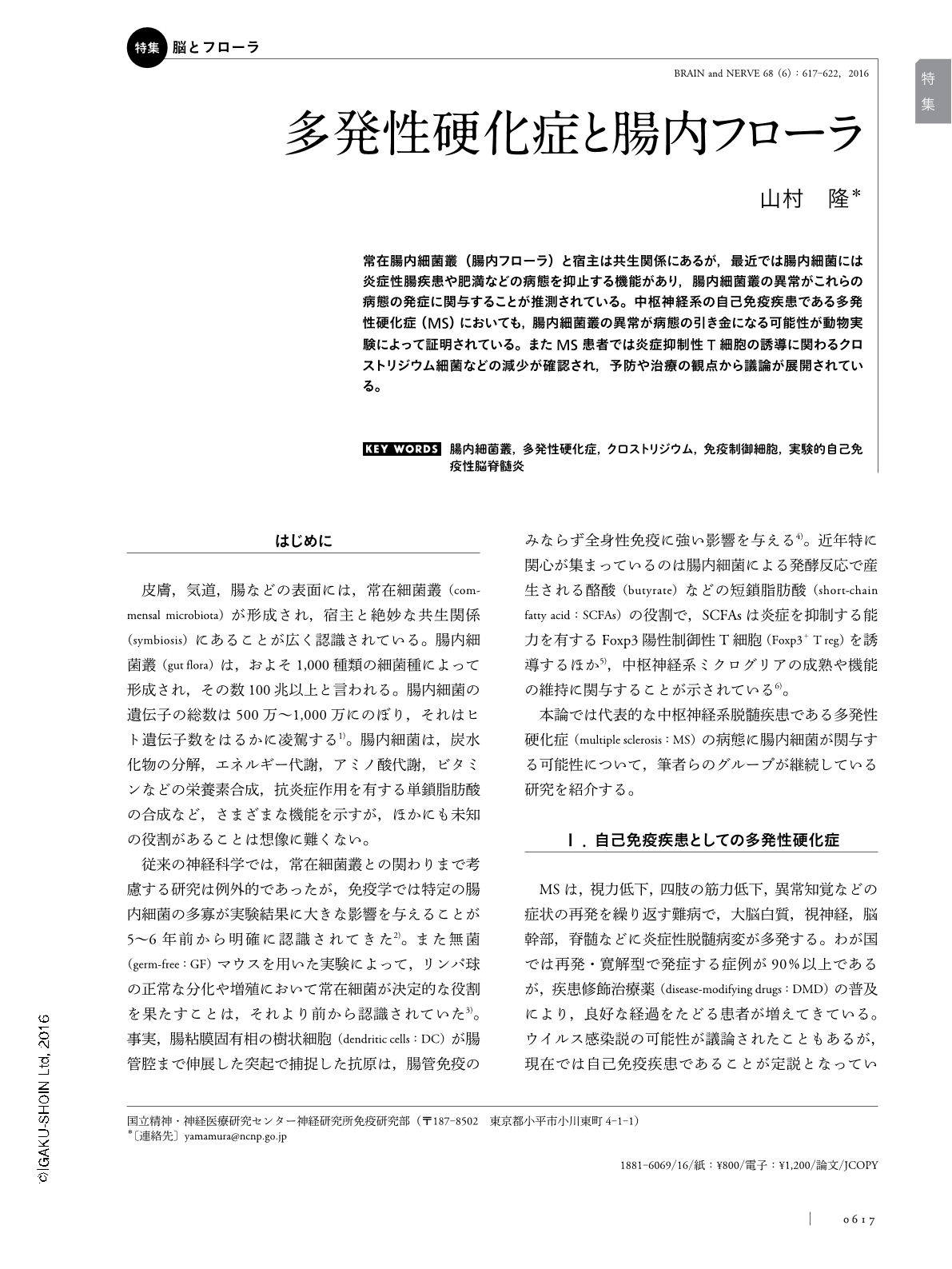Japanese
English
- 有料閲覧
- Abstract 文献概要
- 1ページ目 Look Inside
- 参考文献 Reference
常在腸内細菌叢(腸内フローラ)と宿主は共生関係にあるが,最近では腸内細菌には炎症性腸疾患や肥満などの病態を抑止する機能があり,腸内細菌叢の異常がこれらの病態の発症に関与することが推測されている。中枢神経系の自己免疫疾患である多発性硬化症(MS)においても,腸内細菌叢の異常が病態の引き金になる可能性が動物実験によって証明されている。またMS患者では炎症抑制性T細胞の誘導に関わるクロストリジウム細菌などの減少が確認され,予防や治療の観点から議論が展開されている。
Abstract
Although a symbiotic relationship between commensal gut microbiota and host is widely appreciated, recent works have indicated that normal gut flora functions to prevent inflammatory bowel diseases and obesity in the host, indicating a more mutualistic relationship. Dysbiosis of the commensal flora may lead to development of these disorders. Studies using experimental auto immune encephalomyelitis (EAE), a rodent model for studying multiple sclerosis (MS), revealed that onset of MS may be triggered by dysbiosis in the gut. We recently revealed a significant reduction in certain clostridia strains, which probably function to induce regulatory T cells, in the gut microbiota of patients with MS. Results from this study should be consideved when designing strategies for the prevention and treatment of MS.

Copyright © 2016, Igaku-Shoin Ltd. All rights reserved.


